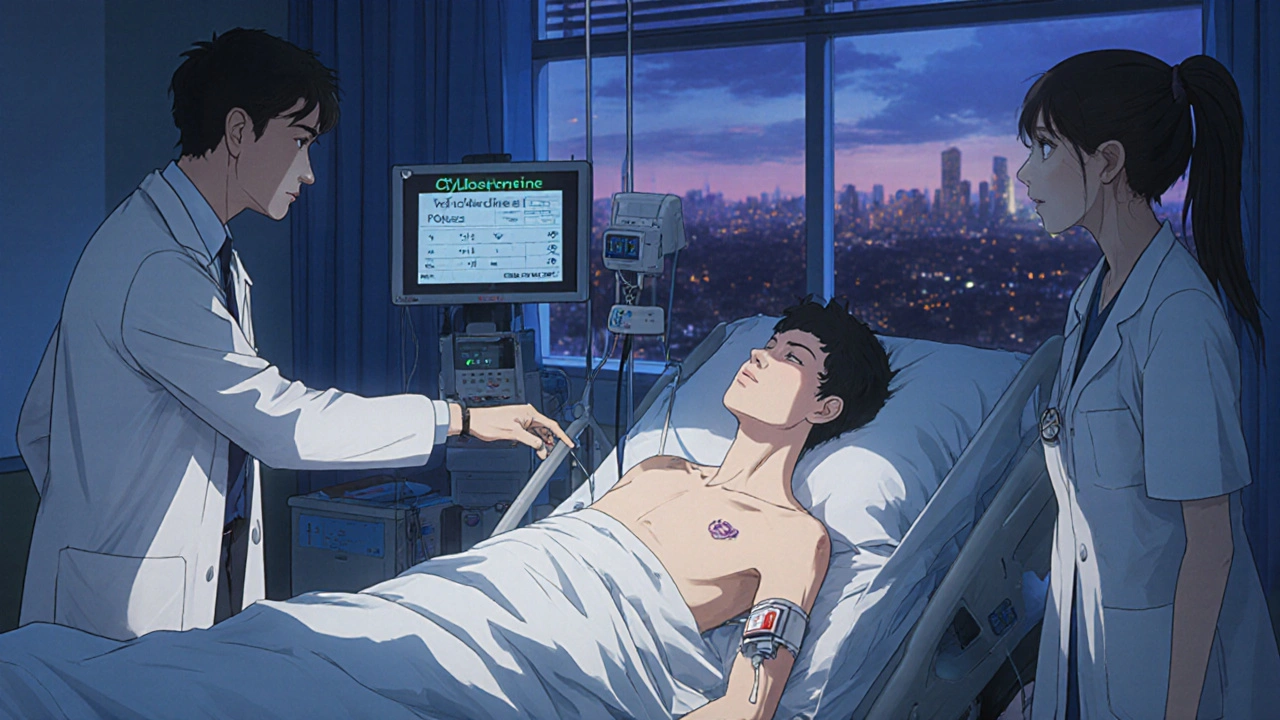
IBD Treatment: Managing Crohn’s Disease and Ulcerative Colitis
When talking about IBD treatment, the set of strategies used to control inflammatory bowel disease, a chronic condition that includes Crohn's disease and ulcerative colitis. Also known as Inflammatory Bowel Disease therapy, it blends medication, lifestyle tweaks, and sometimes surgery to keep symptoms in check.
One major piece of the puzzle is Crohn's disease, a type of IBD that can affect any part of the gastrointestinal tract and often causes abdominal pain, diarrhea, and weight loss. Its counterpart, ulcerative colitis, an inflammation limited to the colon and rectum that usually shows up as bloody stools and urgency, shares many treatment goals but differs in where the damage occurs. Understanding both conditions helps you pick the right approach because, as a rule, IBD treatment must address the specific disease pattern, severity, and patient lifestyle.
Medication is the first line for most people. Traditional options like aminosalicylates and corticosteroids calm flare‑ups, while immunomodulators keep the immune system from overreacting. In recent years, biologic therapy, targeted drugs such as anti‑TNF agents, integrin blockers, and interleukin inhibitors that intervene directly in the inflammatory cascade has transformed remission rates. The semantic link is clear: effective IBD treatment requires biologic therapy for patients who do not respond to standard meds. These agents often lead to longer periods without symptoms, but they also demand monitoring for infections and other side effects.
Beyond pills, what you eat matters a lot. dietary management, personalized eating plans that limit trigger foods, boost fiber, and ensure adequate nutrients works hand‑in‑hand with drugs to reduce inflammation. Many patients find success with low‑FODMAP diets, specific carbohydrate regimens, or simply avoiding high‑fat, processed meals. The relationship is simple: diet influences gut microbiota, which in turn can modulate disease activity. Tracking symptoms alongside food intake gives clues about what to keep or cut.
When medication and diet aren't enough, surgery steps in. For Crohn's disease, resection removes damaged sections, while for ulcerative colitis, colectomy can be curative. Surgical decisions are guided by disease extent, complication risk, and patient preference. In practice, surgery complements medical therapy to achieve lasting remission for many people.
Key Approaches to IBD Care
Putting all these pieces together, a comprehensive IBD treatment, plan that includes medication, diet, and possibly surgery, offers the best chance at a symptom‑free life. First, doctors assess disease type—Crohn's or ulcerative colitis—and severity. Then they choose an appropriate drug class, often starting with aminosalicylates or steroids before moving to immunomodulators or biologics if needed. Simultaneously, patients work with dietitians to fine‑tune meals, keeping a food‑symptom journal to spot patterns. Regular labs and imaging track inflammation levels, guiding dosage adjustments or timely surgery. Whether you're newly diagnosed or have been living with IBD for years, the collection below covers real‑world tips on medication choices, diet hacks, side‑effect management, and what to expect from surgery. Dive in to find actionable advice that matches your situation and helps you stay ahead of flare‑ups.

